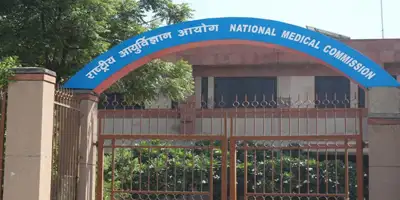
Mumbai: The Maharashtra Medical Council (MMC) has decided to take stringent action against doctors involved in misleading advertisements and the misuse of social media platforms.
The MMC’s decision follows complaints from patients regarding such practices, with seven cases of concern already reported. Some of these complaints include serious claims of “guaranteed” treatments for life-threatening conditions like cancer, as reported by Hindustan Times.
Council officials stated that while some doctors use social media to dispel myths and offer valuable public health guidance, others have been found exploiting these platforms for deceptive advertising. As a result, the MMC has decided to take firm action against those involved in misleading practices.
Dr. Vinky Rughwani, MMC Administrator, stated that such advertisements and claims violate the Indian Medical Council (Professional Conduct, Etiquette, and Ethics) Regulations of 2002. He emphasized, “Patients are being misled by false claims and advertisements on social media. Advertising by doctors, even on social media, is prohibited. Claims such as ‘100% guaranteed treatments’ are unethical and violate established norms.”
The MMC also pointed out the increasing use of third-party online platforms that allow doctors to promote their services. Dr. Rughwani noted, “While doctors can share details about their clinic, consultation hours, and location online, using these platforms for promotional activities—especially those with misleading claims and testimonials—is unacceptable. Patients trust doctors, and such advertising practices exploit that trust.”
The MMC’s actions are aimed at ensuring that patients receive accurate and ethical medical advice, maintaining high standards in healthcare.
Dr. Sanjay Patil, National Secretary (elect) of the Indian Medical Association (IMA)-Hospital Board of India, expressed strong opposition to advertisements claiming guaranteed treatments. He emphasized, “We support ethical ‘advertainment’ to guide patients on specialized treatments, but we are against misleading claims. We also oppose online aggregators and have raised this issue with ministers to regulate them. Doctors should promote government platforms to increase their visibility.”
Despite the government’s plans to address misleading advertisements, the issue remains unresolved. We previously reported that the proposed amendments to the Drugs and Magic Remedies (Objectionable Advertisements) Act, 1954, aimed at imposing stricter penalties for deceptive ads—including those for Ayush medicines—have been stalled for over four years. The proposed changes would broaden the Act to include additional diseases and conditions and introduce harsher penalties, replacing outdated fines and short prison sentences.
What Does the NMC Say?
The National Medical Commission (NMC) recognizes the benefits of doctors using social media for patient care, public health engagement, and building professional networks. However, it becomes problematic when social media is used for self-promotion or to solicit patients.
In light of the growing use of social media, the NMC had introduced guidelines for doctors’ conduct on these platforms through the National Medical Commission Registered Medical Practitioner (RMP) (Professional Conduct) Regulations 2023, which were later put on hold. These regulations included provisions against purchasing likes and followers or posting patient success stories.
The guidelines stated, “The broader principles of medical ethics should guide the use of social media by RMPs,” and stressed that “all written and visual communication should be truthful, respectful, and professional.”
NMC’s Code of Conduct for RMPs on Social Media:
- RMPs can share factual, verifiable information on social media but must avoid misleading or deceptive content that exploits patients’ vulnerabilities.
- RMPs should not discuss patient treatments or prescribe medicine via public social media. If a patient reaches out online, the doctor should direct them to a telemedicine or in-person consultation.
- Posting patient photographs or medical images on social media is prohibited, as these become public data once shared.
- RMPs should maintain professionalism in their interactions with colleagues on social media.
- RMPs should refrain from purchasing likes or followers or using paid services to improve their visibility.
- Soliciting patient testimonials or endorsements on social media is not allowed.
- Sharing images or videos of healed patients or surgical results is prohibited.
- RMPs can share educational content within their areas of expertise, but it must adhere to ethical guidelines.
- The same guidelines apply to RMPs’ personal websites.
- RMPs must conduct themselves with dignity and respect on social media, avoiding boundary violations.
- Soliciting patients via social media is unethical.
NMC’s Action on Misleading Advertisements:
The NMC has also taken action regarding misleading advertisements by corporate hospitals. A panel has been formed to examine these advertisements and determine whether specific rules should be implemented to regulate corporate hospital ads.
This decision follows a Public Interest Litigation (PIL) filed by Dr. Aniruddha Malpani, a Mumbai-based infertility expert, prompting the Apex Court to issue a notice to the NMC.


